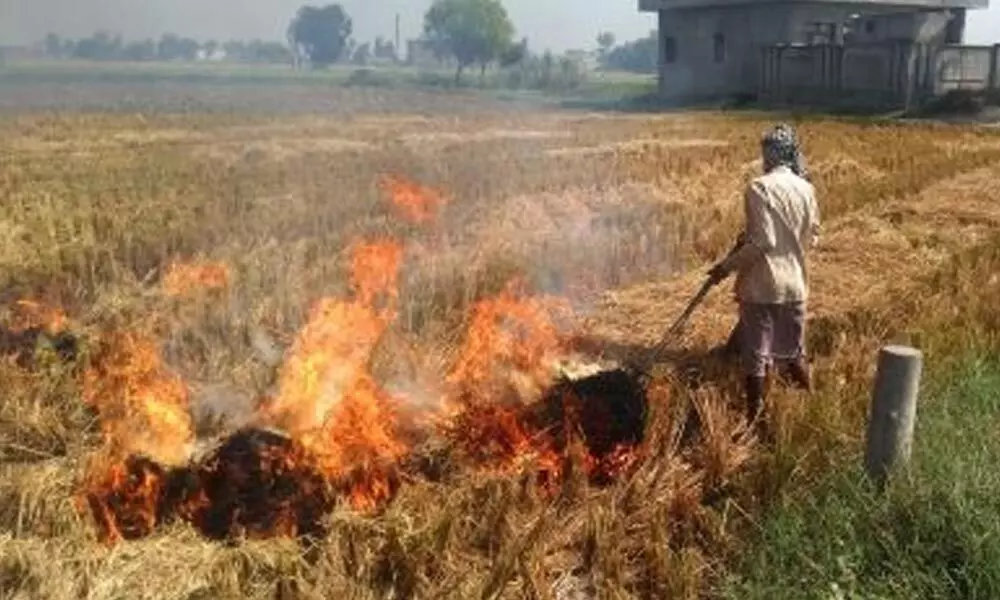Produce hydrogen for electric vehicles

Produce hydrogen for electric vehicles
With the countdown to the monsoon withdrawal officially started, apprehension of bad air quality days has started
New Delhi: With the countdown to the monsoon withdrawal officially started, apprehension of bad air quality days has started. And, amongst the many sources that cause pollution is 'parali' (stubble burning) by farmers in Punjab and Haryana. Now, the farmers can look forward to not just earning from this agri-waste but also help in the generation of hydrogen.
Researchers from Pune have developed a unique technology for direct generation of Hydrogen from agricultural residue. This innovation can promote eco-friendly hydrogen fuel-cell electric vehicles by overcoming the challenge of hydrogen availability. Of the several steps that India has promised the world community as part of its Nationally Determined Contributions (NDCs), the action to be taken to limit carbon emissions to restrict global temperature rise, India has set a target of 450 GW of renewable energy by 2030.
Agricultural waste, which faces a great challenge for disposal, could be one of the sources of hydrogen production, and this could solve the dual problem of energy generation and waste disposal. A team of researchers from Agharkar Research Institute (ARI), Pune, an autonomous institute of the Department of Science and Technology (DST), government of India, in collaboration with Sentient Labs of KPIT Technologies, have developed the technology at lab-scale to extract hydrogen from agricultural residues.
"Our technology is 25 per cent more efficient as compared to conventional anaerobic digestion processes used today. The two-stage process eliminates the pre-treatment of biomass, thus making the process economical and environment friendly. This process generates a digestate that is rich in nutrients, which can be used as an organic fertiliser," said Director of the ARI, Dr Prashant Dhakephalkar.
The developers of the technology explained that the hydrogen fuel generation process comprises the use of a specially developed microbial consortium that facilitates biodegradation of cellulose- and hemicellulose-rich agricultural residues, such as biomass of paddy, wheat, or maize, without thermo-chemical or enzymatic pre-treatment.
"This breakthrough of generating hydrogen from unutilised agricultural residue will help us to become self-reliant on energy resources. It will also add a major stream of revenue to the farmer community," chairman, Sentient Labs, Ravi Pandit said. Scientists, Dr SS Dagar and Pranav Kshirsagar from Maharashtra Association for Cultivation of Science (MACS-ARI) and Kaustubh Pathak from KPIT-Sentient, contributed significantly towards the development of the process. An Indian patent application has been filed to protect the IPR.








